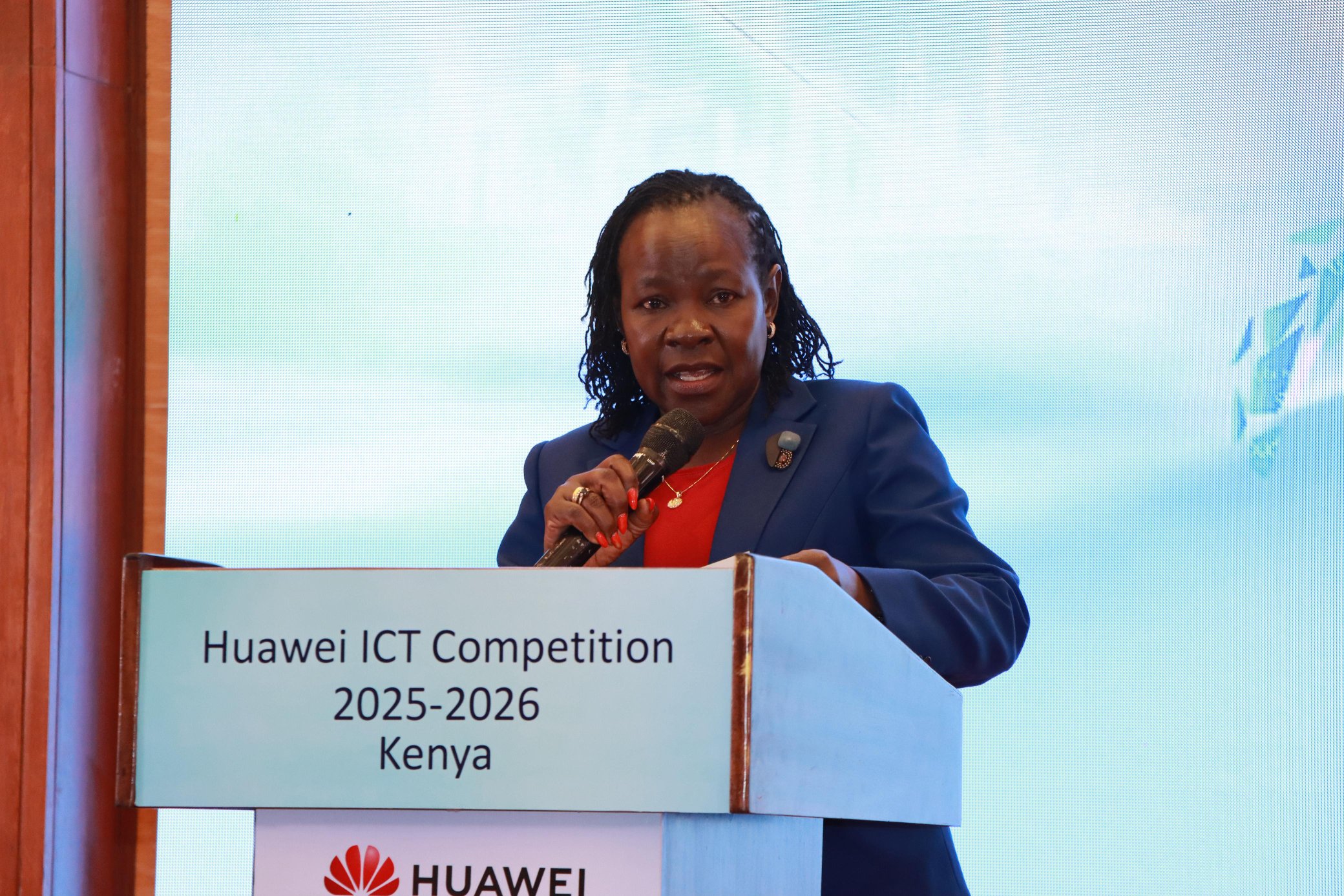

The government is planning to change how examination is produced and assessed in Technical and Vocational Education and Training (TVET) institutions.
In the planned overhaul, the state will use Artificial Intelligence (AI), in what the ministry now says will enhance efficiency, credibility and alignment with industry needs.
Speaking during the launch of a Huawei-sponsored ICT skills competition, the Principal Secretary for TVET, Esther Muoria, announced that AI examination centres are already being established across the country.
The centres will enable the Kenya School of TVET to generate exams, marking schemes, and results in a single day using AI technology.
“We feed our occupational standards and curricula into the system, and AI crafts the examinations and marking schemes, then produces results immediately. This will significantly modernise our assessment processes,” said PS Muoria.
She added that the initiative forms part of a broader government push to integrate technology into skills training and testing, while also bridging the gap between graduate competencies and market demands—particularly in emerging fields such as AI.
According to Dr Muoria, 150 TVET institutions are being equipped as AI centres of excellence under a partnership with Huawei. Trainers have already undergone AI instruction at the Kenya School of TVET, with the knowledge cascaded to institutions across the country.
She added that the overhaul is not just about faster assessment, but also about improving the quality of skills among trainees.
“From preparing for competitions to participating at regional and international levels, our young people are skilling and upskilling. The same drive will apply in how we assess them,” she noted.
Muoria also revealed that the government is working to increase TVET participation in national and global ICT competitions, which have historically been dominated by university students.
The head of Huawei Kenya’s ICT Academy, Michael Kamau, said the 2025-2026 edition of its annual ICT Competition, marks the 10th year of the program globally and in Kenya.
The contest targets university and technical and vocational education and training (TVET) students, aiming to equip them with practical skills in information and communications technology.
This year’s competition seeks 12,000 applications from across the country, the largest participation target since its inception.
Participants will compete in areas such as network engineering, cloud computing, and artificial intelligence, with winners advancing to regional and global stages.
A memorandum of understanding signed with Huawei will see the competitions expanded to the TVET sector in 2025 and 2026.
Beyond exams, the ministry is also keen on ensuring that graduates can secure opportunities both locally and internationally.
Muoria pointed out that the goal is “labour mobility” rather than labour export, enabling Kenyan youth to work anywhere in the world, return home with enhanced skills, or establish their own enterprises.
The launch event in Nairobi was attended by senior government officials, including Youth Affairs Principal Secretary Fikirini Jacobs, Foreign Affairs Principal Secretary Korir Sing’Oei, and National Assembly Speaker Moses Wetang’ula.
Michael Kamau, head of Huawei Kenya’s ICT Academy, outlined plans to work with universities and TVET institutions to expand the reach of the competition.













